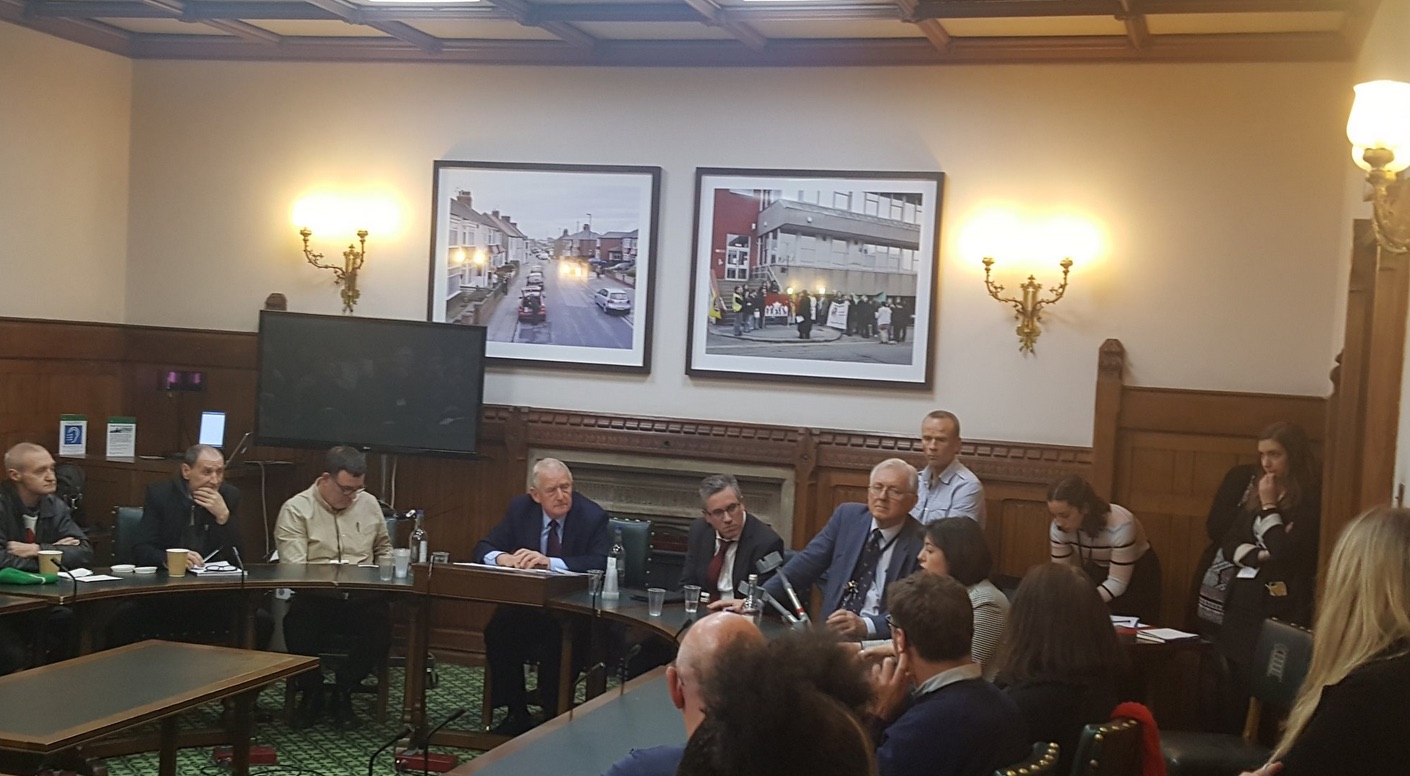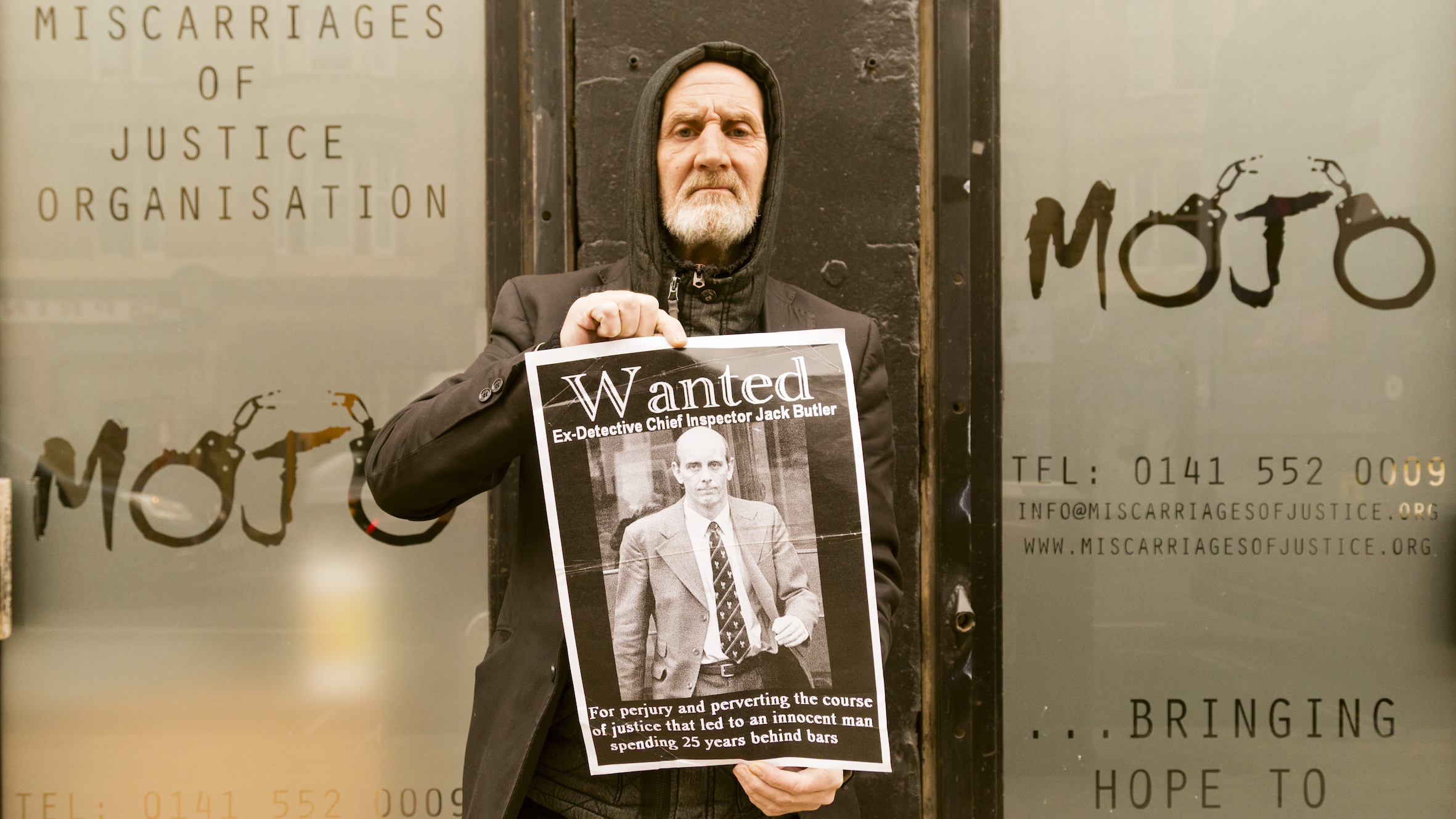A new parliamentary group promises to ‘revive the tradition’ of MPs campaigning to highlight miscarriages of justice
A new parliamentary group promises to ‘revive the tradition’ of MPs campaigning to highlight miscarriages of justice case
A new parliamentary group was launched in Westminster this week promising to ‘revive the tradition’ of politicians campaigning to highlight miscarriage of justice cases. The Labour MP Barry Sheerman chaired the inaugural meeting of the all-party parliament group on miscarriages of justice which aims to campaign to improve the lot of the wrongly convicted and reform the appeal system.
‘Miscarriages of justice have a truly devastating consequence for those who are convicted. It is vital the state does everything it can to prevent them from occurring in the first pace,’ said the MP for Huddersfield who has campaigned to highlight the case of Tony Stock for 25 years. ‘When miscarriages do happen the state has to ensure there are quick and effective mechanisms in place to correct them. Currently those obligations aren’t being met.’
Sheerman invoked what he called the ‘strong tradition of parliamentarians using their platform to raise awareness’ on miscarriage cases. He highlighted the former Labour MP Chris Mullins’ campaigning work for the release of the Birmingham Six. ‘We owe it to miscarriage of justice victims to revive that tradition and we need do it urgently. It is the hope that the new launch of the APPG will be the first step in political action to prevent wrongful convictions and improve access to justice for those who have been convicted of crimes they didn’t commit.’
The APPG’s founding officers include former Conservative minister Sir Peter Bottomley (who once cited his proudest achievement as getting Krishna Maharaj off death row), Baroness Vivienne Stern and Lord Ramsbotham who both have long track record in prison reform, the Labour MP Lucy Powell and Lord Jim Knight of Weymouth.

Pic: Centre for Criminal Appeals
Paddy Hill of the Birmingham Six, Rob Brown, who spent 25 years in prison for a crime he did not commit, and Patrick Maguire of the Maguire Seven all spoke at the meeting. Maguire was the youngest of the seven wrongly convicted for the 1974 pub bombings. ‘I was 13 when I was arrested and 14 when I was sentenced, I am 56 now. It has been life sentence,’ Maguire told MPs. ‘… I don’t know tomorrow how I am going to wake up and feel today. I know you are trying to do good but I have been here before… . If you are going to do this properly, please do it – because otherwise it’s is just not on.’
MPs watched a new BBC documentary (Fallout) featuring Hill and Brown about the lack of support for victims of miscarriage on release. You can find out more about Paddy Hill’s Miscarriage of Justice Organisation and their Say I’m Innocent Campaign here.
The shadow justice minister Richard Burgon promised to give the initiative his full backing. ‘We’re in situation for too many people in this country where access to justice is denied. People aren’t on equal terms with state when there has been an injustice. That has to change and that’s why we have been supporting the Hillsborough Law proposals. It is important we shine a light on the denial of justice where we can because otherwise it makes a mockery of the system.’
There was anger at a High Court ruling last week which appears to have ended Eddie Gilfoyle’s chances of overturning his conviction. Gilfoyle was jailed for life in 1993 for the murder of his eight and a half months pregnant wife, Paula who was discovered hanging by her neck in the garage at the couple’s home on the Wirral, near Liverpool. It was claimed that Gilfoyle staged her suicide and that her handwritten faked suicide notes were not genuine. There have always been concerns about the safety of his conviction and the the Times newspaper has supported Gilfoyle’s fight to clear his name for the last ten years.
His lawyers were challenging the CCRC’s rejection last July of an application submitted in August 2010 – as reported here. The commission previously referred the case in 2010. Gilfoyle’s solicitor, Matt Foot of Birnberg Peirce read out a message from his client. ‘What Eddie wanted to say was that the CCRC is not independent. They are the same as the Court of Appeal. They have become the Court of Appeal. They are so scared of the Court of Appeal they might as well be the Court of Appeal.’
‘My own experience of dealing with the CCRC is that they are moribund, office-bound and file-based,’ continued Foot. ‘They haven’t seen a single witness. They haven’t spoken to Eddie and they haven’t been to the garage. They haven’t been to the area. They aren’t fit for purpose. They should by reformed or removed.’ Lord Hunt of Wirral came to show his support for his former constituent. ‘I have say been fighting for a long time to prove the innocence of Eddie Gilfoyle. I will do everything I can to support the group.’
Prof Julie Price of Cardiff University’s innocence project pointed out that in the CCRC’s 20-year history there have only been two cases that the commission has referred back to the Court of Appeal twice. ‘That cannot be right. The relationship between the Court of Appeal and the CCRC has to be looked at as a matter of absolute urgency. At Cardiff, we have spent 12 years looking at 35 cases and we have submitted 17 cases.’ Cardiff is the only university that has had a conviction overturned but Price pointed out that was ‘only on a narrow point’ to do with gunshot residue which, as she out it, ‘didn’t scare the Court of Appeal’. ‘The court’s relationship between the CCRC has to be put under the microscope,’ she said.
Barry Sheerman said that the performance of the watchdog, 20 years old this year, was ‘not meeting the expectations’. ‘Last year the CCRC’s referral rate was just 0.77%. That’s extremely low,’ he said.
David James Smith, a CCRC commissioner, attended the meeting. In response to an earlier article on the Justice Gap quoting the 0.77% figure he tweeted:
The figures suggest this is factually wrong. A 12 year average of 5.3 cases a year referred by the Home Sec (C3) between 1981 and 1992 inclusive, see Chapter 11, par 5 Royal Commission https://t.co/IC1EFqekw8. Includes peak years of West Mids police corruption cases. 1/2
— David James Smith (@davidjamessmit5) November 29, 2017
CCRC recent dip to 12 referrals 2016/17. 20 year average is 31.7 a year. Plus (in contrast to C3?) independent reviews each year of many hundreds of unreferred cases. Still, no complacency at @ccrcupdate. We share concerns at the downturn, strive to identify referrable cases 2/2
— David James Smith (@davidjamessmit5) November 29, 2017
The CCRC tweeted that it was ‘as concerned as anyone by the drop in referrals’. ‘Every case we see is looked at independently and on its merits but we can only refer the cases where there are grounds to do so,’ it added.
Paddy Hill claimed that of 38 cases sent back by the CCRC to the Court of Appeal in 2015, 23 cases concerned asylum seekers. ‘What they have to with the CCRC is beyond me. Their argument is with the Home Office and not the CCRC,’ he added. A further five cases were to do with dangerous dogs. What the hell have they got to do with the commission?’
The CCRC was set up on the recommendation of a Royal Commission set up on the day Hill and the other were released from his prison. He had a suggestion for its reform: ‘If you want the CCRC to work properly put me in charge of it. I wouldn’t be bulled by the CA because that’s what they do – they bully the CCRC.’
David James Smith countered that the asylum cases were criminal convictions – ‘and wrongly convicted due to failures by their lawyers and the criminal justice system- and we champion those cases. It’s right we do.’ He said that watchdog shared the concerns expressed by Gloria Morrison of the campaigning group JENGbA about the challenges faced by the Court of Appeal’s rejection of joint enterprise cases in the wake of the Supreme Court ruling last year that the law had taken a ‘wrong turn’. ‘We are desperate to find cases we can refer back to the court. We are constantly reviewing cases. We aren’t at our desks idly. We are actively investigating cases.’
The Labour MP Lucy Powell said that there was cross-party group of MPs pushing for a debate on joint enterprise.







